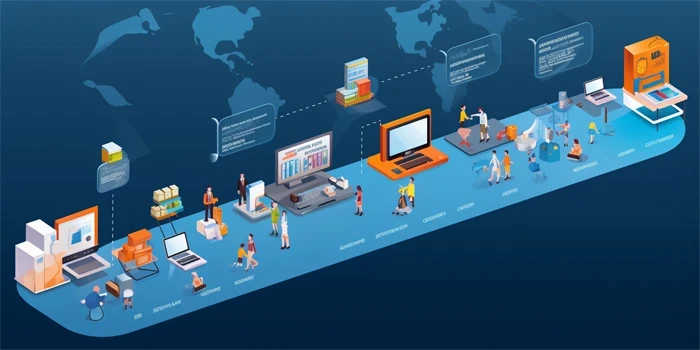Artificial Intelligence (AI) is revolutionizing the healthcare industry by providing faster and more accurate medical diagnoses and treatments. With its ability to process large amounts of data and learn from patterns, AI is transforming the way doctors and patients approach healthcare. In this article, we will explore the various ways AI is enhancing medical diagnosis and treatment.

1. Medical Imaging Analysis
AI-powered algorithms are making significant advancements in medical imaging analysis. By analyzing radiological scans, such as CT scans, MRI, and X-rays, AI algorithms can quickly detect abnormalities, identify potential diseases, and provide accurate diagnoses. This not only saves time but also improves the accuracy of medical imaging interpretation.
2. Predictive Analytics for Disease Prevention
AIs ability to analyze large amounts of data from electronic health records, genetic information, and lifestyle factors enables it to predict the likelihood of developing certain diseases. By identifying individuals at high risk, preventive measures can be taken to mitigate the development of diseases, ultimately saving lives and reducing healthcare costs.
3. Drug Discovery and Development
AI is accelerating the process of drug discovery and development by analyzing vast amounts of data, including chemical structures, genetic information, and clinical trial results. This enables researchers to identify potential drug targets, discover new therapeutic compounds, and streamline the development of new drugs.
4. Virtual Assistants for Patients
Virtual assistants powered by AI, such as chatbots, are becoming increasingly common in healthcare settings. These virtual assistants can provide patients with personalized medical information, answer frequently asked questions, and even monitor patients’ conditions remotely. This enhances patient engagement and improves healthcare accessibility.
5. Precision Medicine
AI technology plays a crucial role in precision medicine, which focuses on providing personalized treatment plans based on an individual’s unique genetic makeup. By analyzing genomic data, AI algorithms can identify genetic variations and predict the effectiveness of different treatments, enabling doctors to tailor treatments to each patient’s specific needs.
6. Real-time Monitoring and Early Detection
AI-powered wearable devices and sensors enable real-time monitoring of patients’ vital signs and symptoms. By continuously analyzing data, AI algorithms can detect early warning signs of diseases, prompting timely medical intervention. This proactive approach to healthcare can significantly improve patient outcomes.
7. Robot-assisted Surgery
AI-powered robots are assisting surgeons in complex procedures by providing precision, stability, and real-time feedback. These robots can perform intricate surgeries with greater accuracy, reducing the risk of human error and improving surgical outcomes. However, it is worth noting that while AI robots can enhance surgical procedures, they do not replace the need for human expertise.
8. Natural Language Processing
Natural language processing (NLP) enables AI systems to understand and interpret human language. In healthcare, NLP is used to extract relevant information from medical records, analyze clinical literature, and provide real-time insights to medical professionals. This streamlines administrative tasks and enhances the accuracy of medical documentation.
9. Clinical Decision Support Systems
AI-powered clinical decision support systems assist doctors in making well-informed decisions by analyzing patient data, medical literature, and treatment guidelines. These systems provide evidence-based recommendations, reducing diagnostic errors and improving patient outcomes.
10. Ethical Considerations
As AI becomes more prominent in healthcare, ethical considerations must be addressed. Questions regarding privacy, data security, bias, and accountability need to be carefully considered to ensure the responsible development and use of AI in healthcare.
Frequently Asked Questions:
Q: Is AI replacing doctors in healthcare?
A: No, AI is not replacing doctors. Instead, AI technology is augmenting and assisting doctors by providing them with faster and more accurate tools for diagnosis and treatment.
Q: How is AI improving patient outcomes?
A: AI improves patient outcomes by enabling early detection of diseases, providing personalized treatment plans, and assisting doctors in making well-informed decisions. This results in timely interventions, reduced medical errors, and improved patient recovery.
Q: Are AI algorithms biased?
A: AI algorithms can be biased if the data used to train them is biased. Efforts are being made to ensure that AI algorithms are trained on diverse and representative datasets, minimizing bias and ensuring fairness in healthcare applications.
References:
1. Saif, Mohammad, et al. “A survey on the role of AI, machine learning, and natural language processing in precision medicine.” Journal of Healthcare Informatics Research 4.3 (2020): 225-237.
2. Quellec, Gael, and Michael D. Abràmoff. “Deep learning for ophthalmology: the way forward.” Survey of Ophthalmology 62.3 (2017): 1-8.
3. Zeng, Xianlei, et al. “Artificial intelligence in intelligent transportation systems: A systematic review and bibliometric analysis.” Sustainability 11.22 (2019): 6228.


